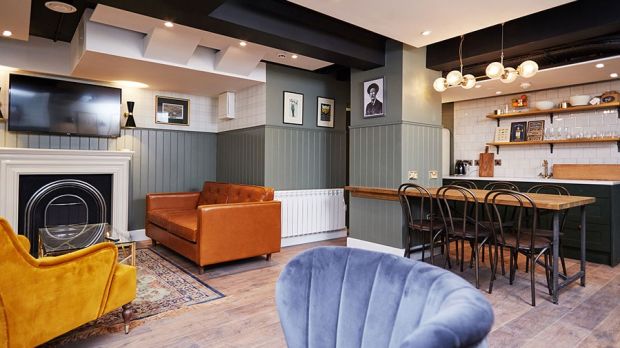The Social Trend Changing Residential Construction

Looking at the global trends likely to affect construction in 2019, one key residential trend is becoming apparent in markets from the US to India and right across Europe, that is, coliving.
This is something we have spoken about since last year’s first Irish coliving scheme launched in Dublin, back in mid-2018. Over the past six months, several Irish property developers have lodged planning applications for similar accommodation, with many developments due to launch throughout 2019.
Internationally, Forbes magazine has advised that “real estate investors should pay attention to trends in micro-living, coliving and short-term rentals in 2019” and earlier this week, CNBC heralded coliving as “the next big thing”.
Of course, the UK market embraced coliving long before it hit Irish shores. One of the best known developments there, The Collective, has now raised close to half a billion pounds (stg) in funding and is experiencing consistent growth in demand.
It is fair to say that Irish market commentators, and indeed fractions of the industry itself, didn’t really ‘get’ the concept, with the Irish Times referring to coliving as “student halls for grown ups”. But to dismiss this local expression of changing global market demands is shortsighted. Coliving is certainly not just for Millenials. The past decade has changed the fundamentals of the property market and the dynamics of how consumers want to use property. One of the first media stories of the New Year was a look at how Ireland is turning into a nation of renters. This is more indicative of marketplace dysfunction rather than choice in many instances. It is important to point out that irrespective of whether seeking alternative ways to live is a cause or an effect of market changes, the result is the same; people need and want more than student accommodation before moving into two-bed rental apartments in the Docklands until they are ready for their starter homes in the suburbs, while they save for their dream home.The world has changed and property development must change alongside it, or preferably preempt that change and plan to deliver it.
And this should be possible to do. Interestingly, coliving is not a new concept. If anything, it has been re-branded in recent years to make it more acceptable to a generation that was raised to expect more. By turning this into a choice, we can ignore some pretty massive housing failures across policy-making and the industry, both nationally and internationally. Of course, many users will see this as a choice. For an increasingly mobile generation, sharing with similarly-minded people is a way to stay connected between career and city/country moves. It strikes the right balance of private room and en-suite facilities, with community-driven, communal area for dining and relaxing. For the industry, this is likely to become a development vehicle of choice, given the profitable nature of the offering (rooms in Dublin are priced between €1,250 and €1,875 right now). As we see big name developers launch schemes across the capital this year, more and more operators will sit up and take notice. We will continue to watch this space.
Ian Lawlor
086 3625482
Director / Business Development
Lotus Investment Group
